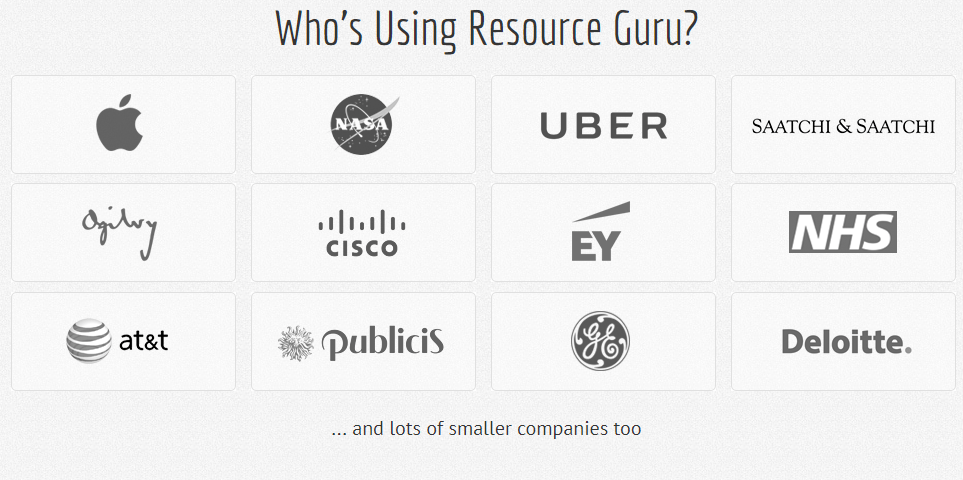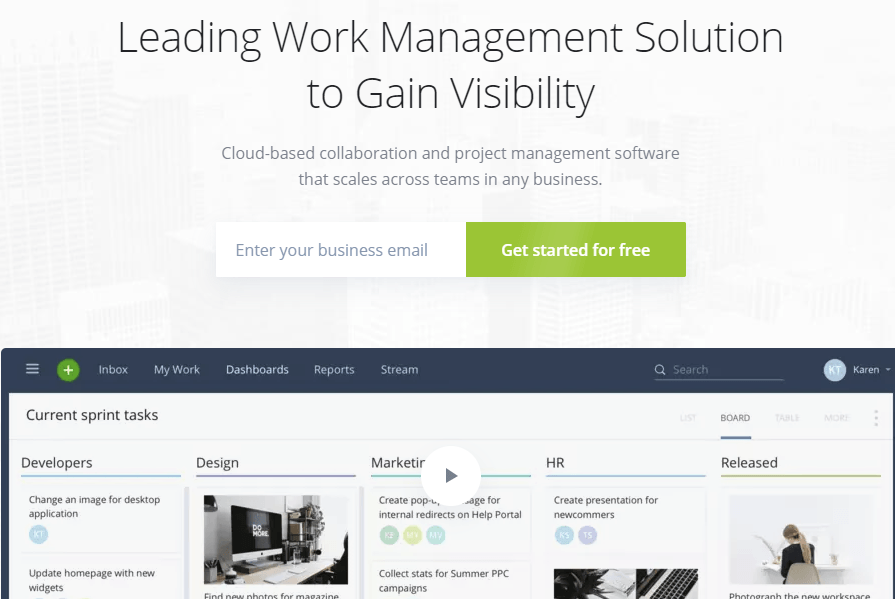

Quick Links
Quick Links

Image credit: Pexels
Have you started outsourcing to ecommerce freelancers yet? It could be the best way to bring back a bit of sanity to your life! Especially in an ecommerce setting, where there are loads of tasks that can be easily outsourced (copywriting, order processing, customer service, support chat, web development, marketing — the list goes on) — hiring ecommerce freelancers is a no-brainer.
If you are the proud manager of a busy group of ecommerce freelancers, you’ll appreciate how important it is to stay organized and ensure that people and resources are being effectively managed. And even if you’re working with just one individual, you’ll want to make sure that they have everything to-hand that they need to do their tasks effectively. Managing ecommerce freelancers doing projects for your business is a constant balancing act. You will need to have the right systems and processes in place in order to create a collaborative atmosphere that’s conducive to productivity and cohesion.
Here are some of the best freelance ecommerce management tools out there to help you scale your operations in a way that’s smart and controlled.
Resource Guru
Resource management can be a big headache for growing companies, especially digital ones. There are loads of moving parts and departments and resources that need to be accurately tracked and activated at key moments.
Knowing what development resources you have available at any given time could spell the difference between a successful website launch, and an expensive, protracted one.

A tool like Resource Guru is an awesome hybrid application that takes into account both people and resource challenges. It’s used by some pretty big tech companies, but the pricing plan makes it affordable for smaller ones too.
Positives of the platform:
● Scalable pricing plan
● Keep track of your resources and save time
● Trusted by the big players
Some tips on freelance ecommerce resource management:
● Plan for your resources on a daily, weekly, monthly, and annual basis. Things will shift as the company grows, but you need to have granular information at all times in order to save time and resources.
● Hiring in ecommerce is dynamic, and you will probably see a lot of evolution and change in the ecommerce freelancers you contract. Be prepared for change and create processes for scalable onboarding and personal development,
Sanebox

Oh, the insanity of email. Every ecommerce freelancer and business owner can relate to this! There are loads of email conversations happening at all times in ecommerce, whether it’s customers, suppliers, or PR opportunities. And it’s important that freelancers know what chains and messages are worth devoting time to, and which ones can be automated or filtered out.
Sanebox is a popular email management tool that uses the power of algorithms to help you stay on top of a growing (if not positively flooding) inbox.
For a busy ecommerce brand that is dealing with multiple inboxes and communication channels, SaneBox can help fecommerce freelancers manage their workload and notifications. Getting pulled away from work into email conversations can be really distracting, so this is definitely something you need to manage from the perspective of happiness and sanity for all.
Communication channels like Slack and social media can generate a ton of unnecessary emails, so get this tool in place to save freelancers some time. After all, you want them to be doing things of value to the brand and your customers, not filing emails all day!
Some tips on freelance ecommerce email management:
● Automating email exchanges using a knowledge base and email management tool will definitely save you time. You just need to create great templates and ensure that freelancers are still intervening directly with customers when it makes sense.
● Don’t get so obsessed with outbound sales emails and retargeting campaigns that you forget to effectively deal with incoming emails. They are an important part of the customer and supplier experience, and an opportunity for you to go above and beyond.
Axure
If like many ecommerce companies you are outsourcing any development or web design work to freelancers, a tool like Axure can help you easily toss ideas back and forth and feedback on wireframes and prototypes faster.
It’s a great way to manage a web project where all involved parties are kept informed of progress, without the need for convoluted messages or email wrangles. Have you ever tried explaining an app prototype in an email? Trust me — don’t even.
For any business that relies on high quality software in order to function, management tools like Axure are all but essential.
Some tips on web project management:
● It’s important to invest in quality web development freelancers who are able to get your project to completion quickly and efficiently. A protracted web launch could mean losing out on $$$ every single day, so make sure that you make it a priority to hire reputable ecommerce freelancers with good track records.
● Web development feedback needs to managed strategically. Putting in too much creative input can really confuse and derail a web development project. Make sure that any feedback is properly checked and approved.
Wrike
A less techy version of Axure, Wrike is a great multipurpose online project management system.

Using Wrike, ecommerce freelancers can easily track the status of a project and keep on top of their workflow, whether or not you as the business owner are there to remind them. It’s also a great collaborative tool that allows everyone to work together on projects and tasks.
Clean, easy-to-use, and intuitive, Wrike is perfect for anyone who has just built or bought their first store and needs the help of one or two talented freelancers to get the brand moving.
Some tips on freelance ecommerce project management:
● Project management is an important discipline, even for a starter store. It means that all the different elements of your store can come together in order to make sales and keep customers happy.
● There are loads of talented freelancers out there who can help you with design, social media, copy, sales, tax, legal — whatever it is that you need. Don’t waste resources because of poor project or time management.
Tickspot
Time is money — and you need to know how your freelance ecommerce investment is being spent. Time tracking is a really easy way to ensure that you are spending budgets in the right areas, and that you’ve divvied up the tasks within your business in a sensible way.
Especially for remote freelancers who are charging you by the hour, having a way to review timelogs and activities can provide extra reassurance.
Just don’t make anyone feel like you don’t trust them — anything that’s designed to track people needs to be handled sensitively.

Some tips on time management:
● Make time tracking easy for the freelancers you hire. Tickspot allows people to track their time on the go on their mobile, which is very important for a dynamic digital industry like ecommerce, and for remote freelancers. You don’t want people getting stressed because of time tracking.
● Integrations are great for ecommerce freelancers. Tick integrates well with Basecamp, which could potentially be a plus if that’s a tool you are also using.
Adobe InCopy
The entire Adobe creative suite is definitely worth looking into, but InCopy is particularly useful when working with freelance ecommerce designers or copywriters. When it comes to precise editing and version control, there is really no better solution than InCopy.
There is nothing worse than working to tight budgets and deadlines, and having to have painful backs and forths about moving commas or periods.

Dropbox commenting can definitely start you off when it comes to design feedback, but anyone that’s serious about editing design work will benefit from getting to grips with the Adobe suite for a clearer, more precise editorial workflow.
When it comes to creating that perfect sales brochure or new social media feature, you’ll be grateful for a quick and easy way to give feedback and track changes.
Some tips on content management:
● Even though quality design and branded assets are very important, it’s worthwhile looking into DIY design tools as well. You would be surprised what you can put together yourself on a budget. For an ecommerce startup, DIY is often best.
● Working with a talented designer is an awesome experience, but make sure they ‘get’ your company vision.
Bonus: Read Up
To manage freelancers effectively, you need to get to know the type of person you are working with. Take advantage of blogs like Freelancing Hacks to browse the kinds of content that freelancers are into. From there, you can get an idea of how they think and what matters to them. Then you can relate on a deeper level and communication and working together becomes easier.
So, there you have it — six tools that cover a wide range of ecommerce freelance management challenges. As you get more and more adept at working with ecommerce freelancers, you will be able to create a stronger induction and onboarding plan so that they all settle into work as quickly as possible. And whenever you introduce a new tool, make sure you test it yourself before rolling it out, and allow reasonable time for testing and familiarization.
Haven’t hired remote yet? Sign up today to get started! It’s a great investment in yourself and your business.

Victoria Greene is a branding consultant and freelance writer. On her blog, VictoriaEcommerce, she shares tips on ecommerce and how companies can improve the way they represent their brand. She is passionate about using her experience to help brands improve their reach.


I like Sanebox and Tickspot, but ActiveCollab is also great – it has time and task tracking, discussion threads, and timeline views.